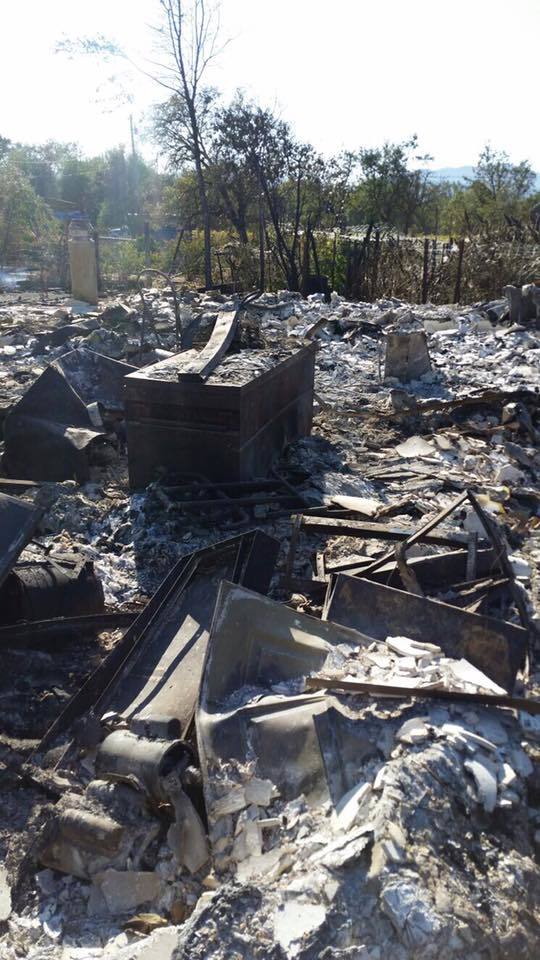Evacuees and Refugees and Communal Empathy

Written by Megan Carson
My community has just suffered another devastating wildfire, this current one being the largest in California state history. Fires from the last four years have caused unrecognizable destruction. Thousands have been forced to leave their homes with only a moment’s notice, sometimes only getting away with their lives and the clothes on their backs. At times, unfortunately, not even that.
My heart has ached for the evacuees. Usually they’re in a bit of a daze, wandering from place to place, not sure where to go next or what to do. Too much time on their hands, too many unknowns about their present (not to mention their future).
Most have friends or family close by to stay with, others have the options of staying at an evacuation center or a hotel. Very few have been forced from their homes on foot.
I’ve counted my blessings that I haven’t yet been in their shoes. I haven’t experienced the first-hand feelings of panic, of fear, of not knowing where to go or what to take or when/if I’ll have a home to return to.
As I’ve watched close friends experience all of these things, as I’ve heard them re-count their experiences, my mind has heard the echoes of the families and individuals I’ve come to know through my work with TSOS, who’ve fled the trauma of their war-torn countries.
Instead of a natural disaster like a fire, imagine you are attacked with bombs or threats by your own government or corrupt fellow citizens.
Instead of a short drive to safety, imagine you are forced to travel hundreds, even thousands of miles. On foot. Crammed in the trunk of a car. On over-crowded boats in the middle of the night, not knowing how to swim.
Instead of a relatively peaceful journey to somewhere safe, imagine you must travel by night through dangerous mountain passes, hiding during the day - to avoid getting caught, arrested, sent back, beaten up, or killed.
Instead of arriving to the soft comfort of a friend’s home, with warm meals and companionship, imagine you arrive to an over-crowded refugee camp with undesirable conditions.
Instead of a short stay of a few days or weeks, imagine the wars in your homeland worsening and refugee camps becoming your home for years. (Can you imagine living in camping-like conditions for years?)
Instead of getting financial help from the Red Cross and FEMA, your own government is the one responsible for your bombed out home and has forced you to run for your life.
It’s admittedly hard to put ourselves in the shoes of a refugee. Their reality is so far removed from our reality here. But, when we take the pain we do know from the experiences we have been given, that’s the first step into the cave of suffering, to sit in communal empathy, to offer a helping hand, validating words of comfort and encouragement.
We can’t know exactly what someone else has been through. Rather than intending to compare who has it worse, we can take what we do know from our own challenges and suffering and use that as a bridge to reach others in their trauma and pain.
As we seek to understand and see our fellow human beings - especially those who are traumatized, scared, hurting, seeking refuge - we will see glimpses of ourselves in our own moments of trauma and need. They are our friends, our brothers and sisters, and they deserve all the compassion we can offer.
Official Statement on the Detention of Refugees and Ongoing Community Violence
With another death in Minnesota and continued violence toward individuals and groups standing up for their communities, we acknowledge the profound fear and uncertainty people are feeling--not just locally, but across the country.
On top of this, there are reports that refugees invited and admitted to our country through the U.S. Refugee Admission Program are now being detained, meaning that our new friends and neighbors feel that fear most acutely.
Refugees have already fled violence and persecution once. They came here legally, seeking safety. In moments like these, we reaffirm our commitment to building communities where refugees and immigrants can live without fear. Where they can go to work, send their children to school, and build lives of dignity and belonging.
We call for due process, accountability, and humanity in all immigration enforcement operations. We call upon our leaders to demand the demilitarization of our neighborhoods and cities. And we call on all of us to continue the work of welcoming and protecting those who have been forcibly displaced from their homes.